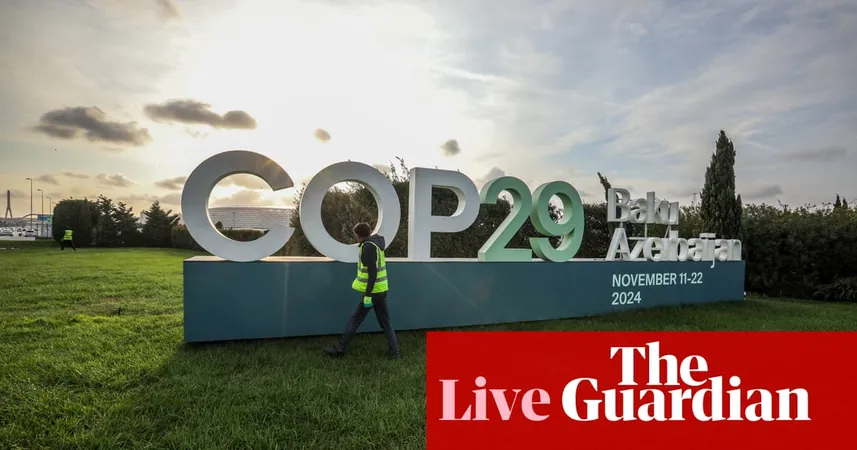
COP29 Updates: Activists Demand $5 Trillion Annual Climate Debt from Wealthy Nations
2024-11-11
Author: Wei
COP29 Updates: Activists Demand $5 Trillion Annual Climate Debt from Wealthy Nations
In a powerful statement from COP29, activists are calling on wealthy countries, referred to as the Global North, to acknowledge and pay a staggering $5 trillion each year as part of their "climate debt" to developing nations in the Global South. Tasneem Essop, executive director of the Climate Action Network, emphasized that this demand stems from the historical reliance of affluent nations on fossil fuels, which has exacerbated climate change and disproportionately affected poorer countries, leading to devastating impacts such as heatwaves, floods, and storms.
Essop highlighted the urgency of the situation, stating, "We know the debt is much larger, but $5 trillion is what we come here to demand." She criticized wealthier governments for finding funding for military operations and fossil fuel subsidies while claiming they are unable to support climate finance. “To come here and say that they do not have money is absolutely untruthful and unacceptable,” she added passionately.
Delivering a finance deal for developing nations is at the forefront of discussions at COP29. While there is a consensus that trillions are needed, the allocation and responsibility of payments remain contentious points in negotiations. Failure to agree on financial support could jeopardize trust between nations, potentially affecting agreements related to carbon emission reductions and the transition to greener economies.
Meanwhile, the host country, Azerbaijan, is under scrutiny for its controversial human rights record and dependence on fossil fuel production. Reports suggest that Azerbaijan's state oil company has sealed deals worth nearly $8 billion since being designated as the host of COP29, raising eyebrows about the sincerity of the country's commitment to addressing climate change.
In a contrasting commentary, activist Greta Thunberg has labeled COP29 as merely another facade for greenwashing, criticizing Azerbaijan's environmental commitment and citing its ongoing geopolitical issues. She called for action in neighboring Georgia, citing the necessity to resist authoritarian regimes that exploit climate talks for political gain, echoing sentiments that highlight the systemic issues at play.
As COP29 unfolds, the stakes are high – not only for climate finance but also for the broader global commitment to mitigating climate change. Rich nations’ pledges will be scrutinized, and the outcomes of these negotiations could have lasting implications for global climate policy and justice.
Conclusion:
As delegates and activists congregate in Baku, the world watches closely. The demand for accountability and support from the Global North has never been more pressing. With so much at stake, can COP29 deliver the solutions needed to address the climate crisis? Only time will tell, but the fight for climate justice is far from over.

 Brasil (PT)
Brasil (PT)
 Canada (EN)
Canada (EN)
 Chile (ES)
Chile (ES)
 España (ES)
España (ES)
 France (FR)
France (FR)
 Hong Kong (EN)
Hong Kong (EN)
 Italia (IT)
Italia (IT)
 日本 (JA)
日本 (JA)
 Magyarország (HU)
Magyarország (HU)
 Norge (NO)
Norge (NO)
 Polska (PL)
Polska (PL)
 Schweiz (DE)
Schweiz (DE)
 Singapore (EN)
Singapore (EN)
 Sverige (SV)
Sverige (SV)
 Suomi (FI)
Suomi (FI)
 Türkiye (TR)
Türkiye (TR)